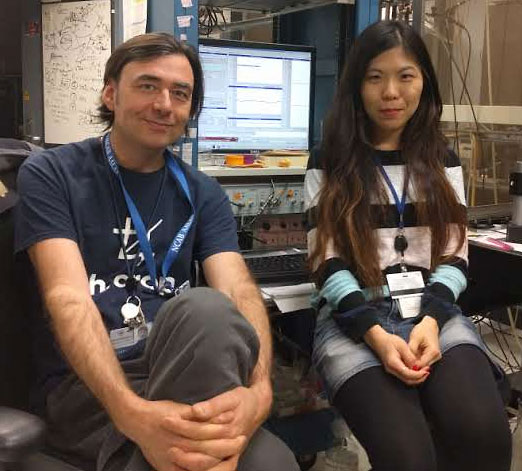Featured Paper of the Month – June 2017
Zapata, Agustin; Hwang, Eun-Kyung; Lupica, Carl R
Lateral Habenula Involvement in Impulsive Cocaine Seeking. Journal Article
In: Neuropsychopharmacology, vol. 42, no. 5, pp. 1103–1112, 2016, ISSN: 1740-634X (Electronic); 0893-133X (Linking).
@article{Zapata:2017aa,
title = {Lateral Habenula Involvement in Impulsive Cocaine Seeking.},
author = {Agustin Zapata and Eun-Kyung Hwang and Carl R Lupica},
url = {https://www.ncbi.nlm.nih.gov/pubmed/28025973},
doi = {10.1038/npp.2016.286},
issn = {1740-634X (Electronic); 0893-133X (Linking)},
year = {2016},
date = {2016-12-27},
journal = {Neuropsychopharmacology},
volume = {42},
number = {5},
pages = {1103--1112},
address = {Electrophysiology Research Section, Cellular Neurobiology Branch, National Institutes of Health, National Institute on Drug Abuse, Intramural Research Program, Baltimore, MD, USA.},
abstract = {The lateral habenula (LHb) is a brain structure receiving inputs from limbic forebrain areas and innervating major midbrain monoaminergic nuclei. Evidence indicates LHb involvement in sleep control, reward-based decision making, avoidance of punishment, and responses to stress. Additional work has established that the LHb mediates negative feedback in response to aversive events. As a hallmark of drug addiction is the inability to limit drug use despite negative consequences, we hypothesize that LHb dysfunction may have a role in the lack of control over drug seeking. Here we examine the effects of LHb inactivation in control over drug seeking in several cocaine self-administration (SA) paradigms in rats. We find that inhibition of the LHb with GABAergic agonists did not alter cocaine SA under progressive ratio or seeking/taking chained reinforcement schedules, or during punishment-induced suppression of cocaine-reinforced responding. In contrast, LHb inhibition increased cocaine seeking when the drug was not available in rats trained to discriminate its presence using an environmental cue. This effect of LHb inhibition was selective for cocaine, as it did not impair responding for sucrose reinforcement. The effect of LHb injection of GABA agonists was mimicked by intra-LHb muscarinic cholinergic (mACh) antagonist injection, and activation of mACh receptors excited a majority of LHb neurons in in vitro electrophysiology experiments. These results indicate that the LHb participates in the suppression of impulsive responding for cocaine through the activation of a cholinergic circuit, and they suggest that LHb dysfunction may contribute to impaired impulse control associated with drug addiction.},
keywords = {},
pubstate = {published},
tppubtype = {article}
}
The lateral habenula (LHb) is a brain structure receiving inputs from limbic forebrain areas and innervating major midbrain monoaminergic nuclei. Evidence indicates LHb involvement in sleep control, reward-based decision making, avoidance of punishment, and responses to stress. Additional work has established that the LHb mediates negative feedback in response to aversive events. As a hallmark of drug addiction is the inability to limit drug use despite negative consequences, we hypothesize that LHb dysfunction may have a role in the lack of control over drug seeking. Here we examine the effects of LHb inactivation in control over drug seeking in several cocaine self-administration (SA) paradigms in rats. We find that inhibition of the LHb with GABAergic agonists did not alter cocaine SA under progressive ratio or seeking/taking chained reinforcement schedules, or during punishment-induced suppression of cocaine-reinforced responding. In contrast, LHb inhibition increased cocaine seeking when the drug was not available in rats trained to discriminate its presence using an environmental cue. This effect of LHb inhibition was selective for cocaine, as it did not impair responding for sucrose reinforcement. The effect of LHb injection of GABA agonists was mimicked by intra-LHb muscarinic cholinergic (mACh) antagonist injection, and activation of mACh receptors excited a majority of LHb neurons in in vitro electrophysiology experiments. These results indicate that the LHb participates in the suppression of impulsive responding for cocaine through the activation of a cholinergic circuit, and they suggest that LHb dysfunction may contribute to impaired impulse control associated with drug addiction.

